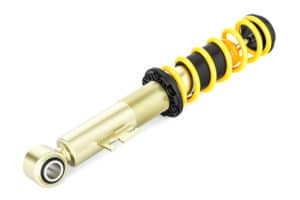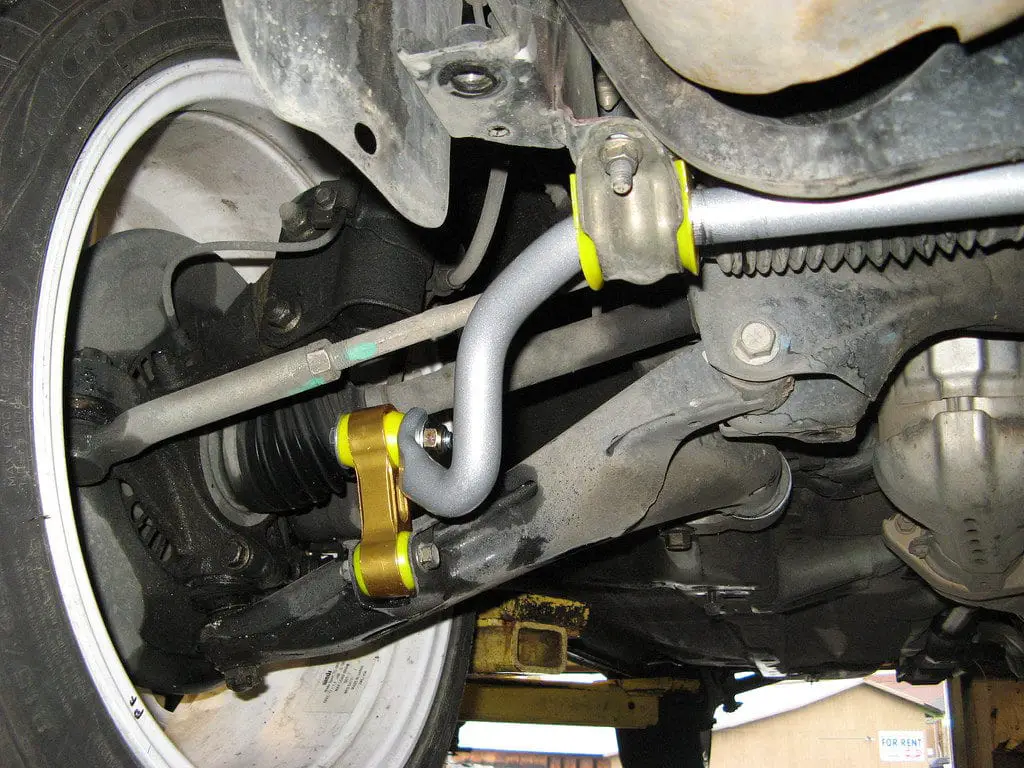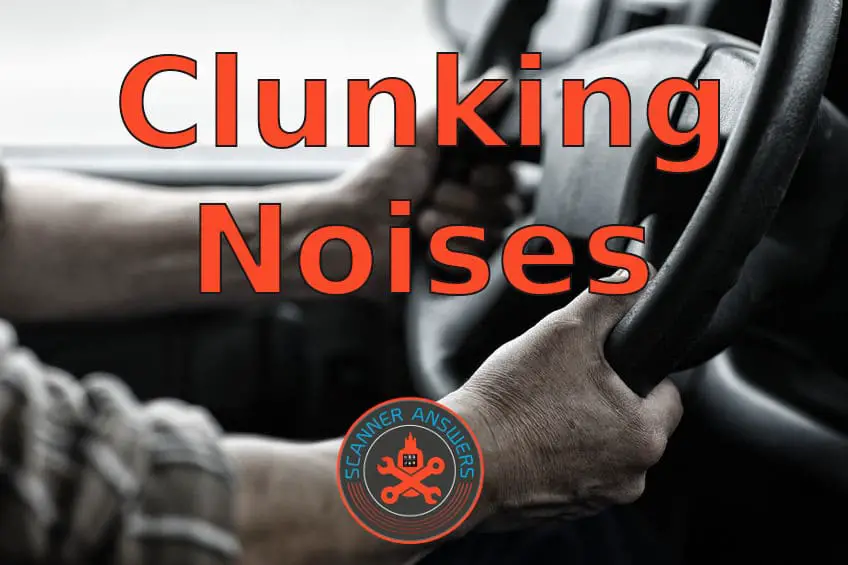Help! Why is my vehicle clunking when I turn?
Hey there I’m Matt and I help out around here at Scanner Answers. Are there clunking sounds when you turn the steering wheel in your car? It could signify a problem with the either the front suspension or the steering components under the vehicle.
Remember that not all vehicles are made the same. Some clunking sounds in a Honda might not mean the same thing in a Chevy or Toyota. There are a lot of things that could go wrong especially if we’re talking about a 5-year or 10-year old car. Vehicles equipped with double-wishbone suspension will emit a different sort of noise compared to vehicles with a MacPherson strut set-up.

Of course, the best thing to do is to have a mechanic check the problem. The vehicle will need to be raised or jacked up in order to determine the possible causes of clunking sounds or suspension system noises.
Remember that the steering feel should be smooth and unobtrusive. It is not normal for knocks, squeals, clunks, or grinding sounds to present themselves when you drive. If your vehicle is still under warranty, take the vehicle to the dealership for a quick servicing.
7 Common Things to Look For When You Hear a Clunk
But if you want to know the problem beforehand, here is a simple guide that will help you determine the source of those clunking noises or squeaks when you turn the steering wheel.
1. Worn or bad tie rods
Bad or worn out tie rod ends will cause a knocking sound as you turn the wheel. The tie rod ends are responsible for connecting the steering rack to the steering knuckle in the front wheels. In other words, when you turn the steering wheel the tie rods will either push or pull the front wheels. This enables the wheels to turn in the proper direction.
Worn out tie rods will also give the steering a vague or unresponsive feel. You will also hear creaking noises when you turn the steering wheel. The tie rods are built to be durable as they have to be strong enough to resist damage as the vehicle goes over bumps, cracks, and potholes.
Read more about tie rods vs ball joints.
2. Damaged sway bar links or anti-roll bars

The sway bar links are designed to keep all four tires from leaving the ground as you turn aggressively. The sway bars will reduce the roll or tilt of the vehicle during a sharp turn. If you happen to hear rattling or clunking noises in the front of the vehicle, a broken or damaged sway bar link might be the culprit.
The other symptoms of damaged sway bar links or stabilizer bars are poor steering feel, loose steering or play in the steering wheel, and poor vehicle handling.
3. Bad suspension bushings
The suspension in your vehicle will utilize quite a number of bushings underneath. The bushings will degrade or go bad over time, especially if you habitually drive over bad or unpaved roads. Depending on the kind of suspension set up, the bushings can be large, small, or a combination of both.
Broken suspension bushings are a result of normal wear and tear. The bushings will make a metal-to-metal clunking sound upon turning the steering wheel. The noises will be lauder if the wheel goes over bumps as you turn the steering wheel.
4. Broken ball joints
ChrisFix always has good videos on these matters!
The ball joints are responsible for connecting the wheel hubs to the suspension components. Depending on the design, the ball joints may either be load bearing components or not. Whatever the case, broken ball joints will demand immediate attention. There is a danger of collapsing the front suspension when the ball joints have reached their breaking point.
The symptoms of bad or broken ball joints are a collection of strange noises when the car accelerates and turns. The steering might also feel heavy when turning or you will hear clunking or grinding noises under the front of the vehicle. You may even feel the steering wheel shake.
5. Worn out shock absorbers or struts
Most modern vehicles utilize gas-type shock absorbers. Older cars or entry-level compacts are usually equipped with hydraulic or fluid-type shocks. If your vehicle has poor ride quality along with loud clunking noises in the front, it could be a sign of bad struts or worn out shock absorbers. Vehicles equipped with MacPherson struts in the front should also check the shock mountings on top. Broken or worn out shock mountings will cause loud clunking noises as well.
The easiest way to determine if the shocks are worn out is to lift the vehicle and inspect the shock body for broken casings or fluid leaks. If you see oil oozing out of the shock body, it is time to replace them.
Read more about Shocks vs Struts here.
6. Broken CV joints
All vehicles equipped with front-wheel drive will be equipped with CV joints or constant velocity joints. The CV joints are connected to the inner and outer end of the front drive shaft. The inner CV joints will interlink the drive shaft with the transmission. The outer CV joint connects the drive shaft to the wheels. From this alone, it is easy to understand the importance of the CV joints in your vehicle.
The CV joints are meant to last a long time. In most cases, you probably won’t need to replace the CV joints at all, especially if you drive a new car every four or five years. But when the protective boot in the CV joint is damaged, that’s where the problems will start. If you hear grinding or clunking noises when you turn the steering wheel (especially at low speeds or when parking), check the CV joints first.
7. Damaged or worn out steering rack
Like I previously mentioned, the steering should be smooth when turning the wheel. But if you notice severe creaking or clunking noises when the steering wheel is in motion, it might be caused by a damaged steering rack. If you see red fluid leaks, it is a sign of a power steering problem.
Check the fluid level of the power steering system. Insufficient amount of power steering fluid will damage the system altogether. If the vehicle is equipped with electric power steering, check the steering rack for unnecessary play and damage.
